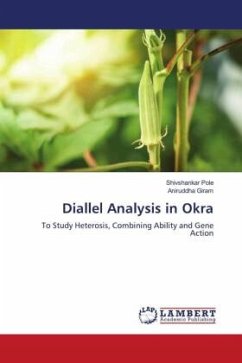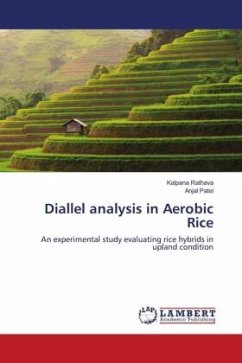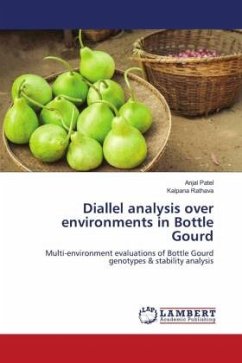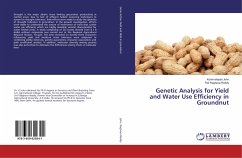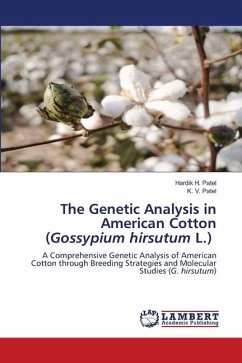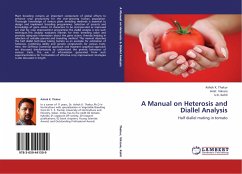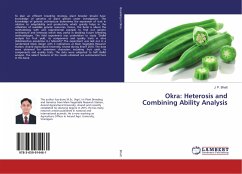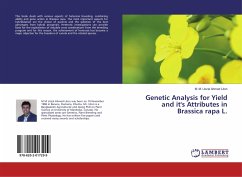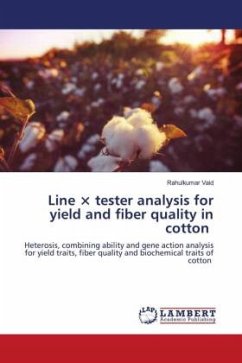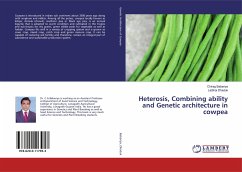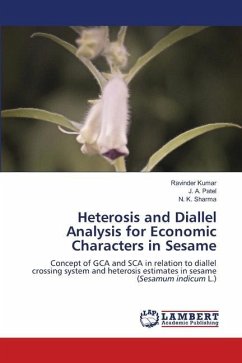
Heterosis and Diallel Analysis for Economic Characters in Sesame
Concept of GCA and SCA in relation to diallel crossing system and heterosis estimates in sesame (Sesamum indicum L.)
Versandkostenfrei!
Versandfertig in 6-10 Tagen
29,99 €
inkl. MwSt.

PAYBACK Punkte
15 °P sammeln!
In oil seed crops, seed yield and oil content is most important trait according to economic use. The investigation was undertaken with examine the per se performance of genotypes, magnitude of heterosis over better and standard parent, gene action and combining ability of parental lines and their hybrids. the results were revealed superior per se performance of some of the parents and crosses that can be utilized for the development of higher yielding varieties. Five hybrids showed significant positive heterobeltiosis and six hybrids showed significant positive standard heterosis for seed yiel...
In oil seed crops, seed yield and oil content is most important trait according to economic use. The investigation was undertaken with examine the per se performance of genotypes, magnitude of heterosis over better and standard parent, gene action and combining ability of parental lines and their hybrids. the results were revealed superior per se performance of some of the parents and crosses that can be utilized for the development of higher yielding varieties. Five hybrids showed significant positive heterobeltiosis and six hybrids showed significant positive standard heterosis for seed yield per plant that are useful for heterosis breeding. Looking to the role of additive and non-additive genes with preponderance of non-additive genes effects controlled the expression of seed yield per plant and its components. It was suggested that hybridization-based selection methods could be used for further scope of improvement in present study; such as single seed descent (SSD) method, bulk selection, pedigree selection and transgressive breeding.



